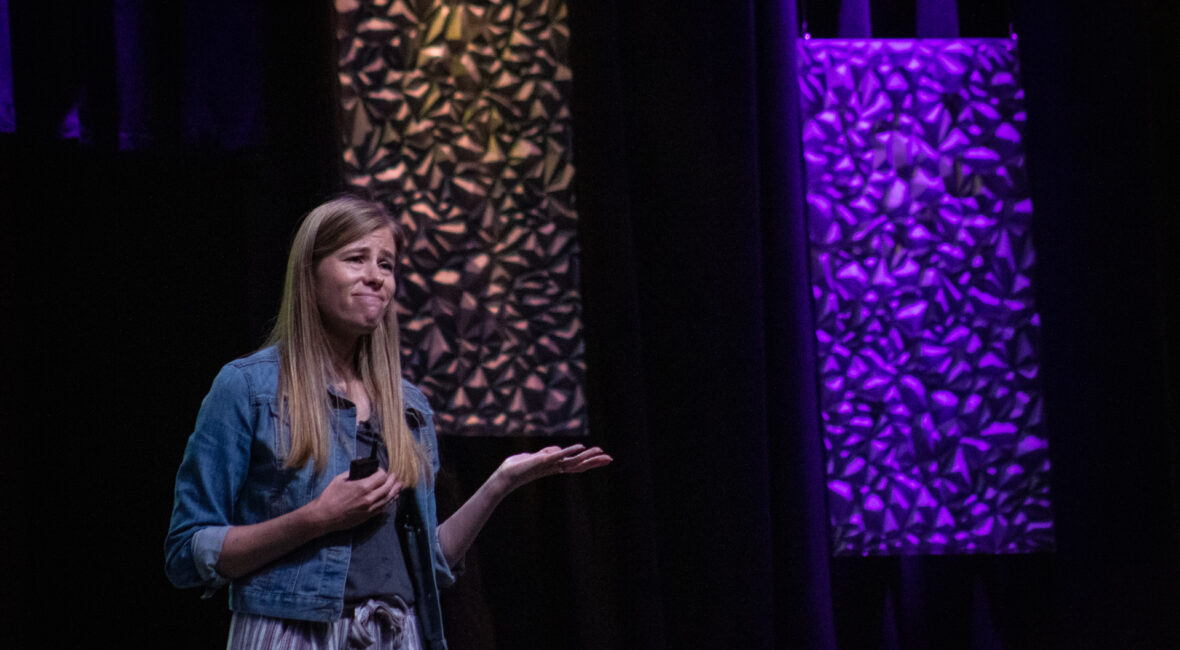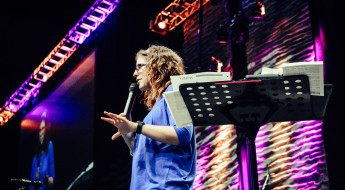
What does it mean to be an ideal woman? How do we courageously live out that ideal while also building holy, lasting friendships with other women?
According to the world’s changing standards, during the last 60 years, the definition of woman has encompassed a wide range. From the “domestic goddess” of the ’50s, to the “anything goes/hippy” stereotype of the ’60s/’70s, and including the more recent, “be like a man,” message of the ’80s /’90s, it is difficult to discern a woman’s purpose. During this morning’s women’s session, Lisa Cotter explains how trying to keep up with these shifting ideals is exhausting at best and impossible at worst.
Fortunately, instead of trying to fit the mold, Lisa bravely built her own identity as a woman. That identity is built on the unchanging standard of Jesus Christ, which we see outlined in Scripture and the Catholic Church. And, as women of today, we are invited to do the same.
But how does God define ideal womanhood? To find the answer, Lisa walks us through Genesis, the writings of St. John Paul the Great, the saints, and finally examines the beautiful friendship of St. Elizabeth and the Blessed Mother.
We know from Genesis that God created two equal but unique expressions of humanity: femininity and masculinity. All of us are created in the image and likeness of God with equivalent value and dignity. However, we as women have freedom to express our individuality through our femininity. We can do this without falling into the traps of the world’s changing definitions. Our worth is not in those changes anyway.
We know from the writings of St. John Paul the Great that, in addition to being unique, each “woman has a genius all her own which is vitally essential to both the world and the Church.” Although this Saint never clearly defined exactly what that “feminine genius” is, delving into his writings further, we find these qualities attributed to it: strength, sensitivity, maternity, self-giving, intuition, fidelity, generosity, and receptivity. In other words, as Lisa explains, “We as women see people with our hearts, loving them into the people God created them to be.”
Unlike the world’s limiting vision, there is a lot of freedom in living out our feminine genius. From St. Joan of Arc, who literally led a military as a young woman, to St. Therese of Lisieux, who lived a quieter bravery as a religious in an enclosed convent some 400 years later, we have many examples of true femininity. What made both Joan and Therese Saints, despite their very different lives and experiences, was that they chased after the Lord with their whole hearts, and they offered themselves to Him fearlessly.
Lisa shared a final thought on how we as women can exemplify fearless womanhood: we need the support of our sisters, by forming holy, lasting friendships with the women around us. God doesn’t expect us to live out our feminine genius alone. As Mary rushed to the side of her cousin and friend Elizabeth when she was in need, let’s joyfully and fearlessly promise to not go it alone.







Leave a Comment